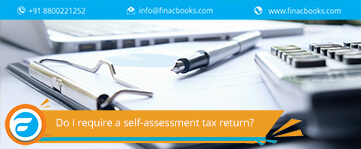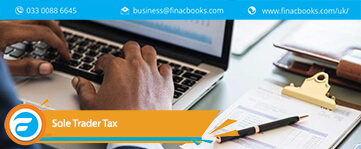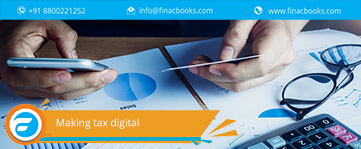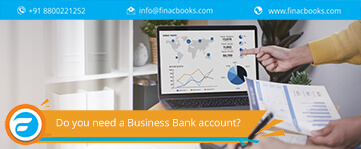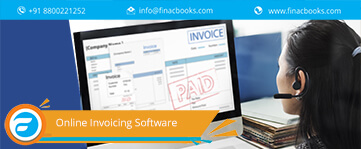The UK’s budding entrepreneurs find themselves in a very advantageous position. Many of us hold dreams of running our own business, and when those dreamers start to take steps to realize their goals, it is very easy to say, “I am going to be self-employed and will start my own business.” In the initial planning stage, aspiring business owners are willing to share their ideas and objectives while hoping they are about to strike gold. What is often overlooked are the steps needed to get the business up and running. While fresh entrepreneurs can be distracted by the bright lights of the future and are well aware of the hard work needed to achieve success, the unglamorous administrative side of starting a business is rarely given much thought.
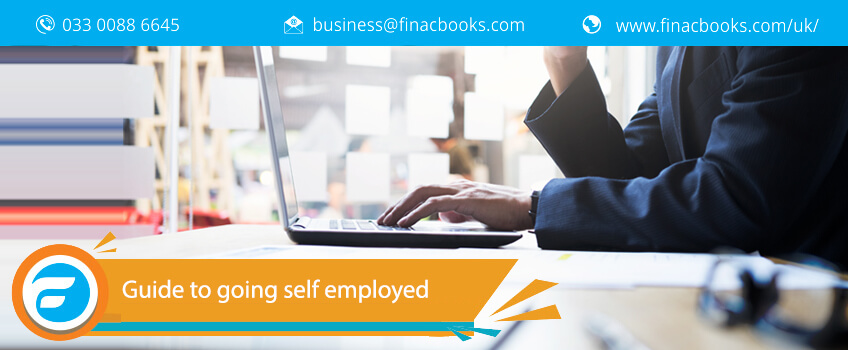
How to Become Self-Employed?
The life of a self-employed person, working as a consultant or creating their own company, is portrayed as an ideal life. Working on your own terms with nobody but yourself to answer is something most people dream of every time they get an ear full from their boss. But the steps to becoming self-employed are not widely known.
The most important thing to be aware of when you want to become self-employed is that you notify HMRC within 3 months of creating the business that you are earning NON-PAYE income. Otherwise, it will lead to fines & penalties.
After notifying HMRC, you are free to set up your business in any way you desire. You can freely decide –
- What industry do you want to work in
- What services do you want to sell
- What prices do you want to charge
- Whether to hire any staff
- Who your target customers are
Self-employment Benefits
The benefits of being your own boss are given below –
-
You are in control of everything – you only answer to yourself
- You decide your working hours
- You hire whom you want
- You do not have a fixed salary
- You feel a sense of achievement when your business grows
What can i claim as a self-employed?
Allowable expenses for self-employed individuals
To determine the taxable portion of your self-employed profit, you can deduct business insurance, a portion of your electricity expenses if you work from home, office costs, stock, and certain business-related travel. However, you should carefully read the self-employed guidance on the government website, as you risk getting into difficulty with HMRC if you deduct an item that is not an allowable expense or if you do not have evidence of the expense.
Self-employed benefits
Specific benefits may be available to you depending on certain criteria. If you are self-employed and earn little money, you may be eligible for income support or working tax credit, although the latter has been mostly phased out in favour of Universal Credit.
Self-employed tax credits
You can claim Working Tax Credit when you are self-employed, although the conditions were tightened in April 2015. Self-employed individuals claiming tax credits must demonstrate that they are dealing commercially with the intent of earning profit and that their self-employed job is structured, regular, and ongoing.
Self-employed housing benefit
Again, Universal Credit has replaced this. If you are self-employed but earn little money, and certain other criteria apply, you may still be eligible for housing benefits and council tax reduction.
When the council determines your eligibility for benefits such as housing benefits, they will very certainly request to examine your business's financial accounts for the previous financial year or a forecast if you have not yet begun trading.
Self-employed universal credit
If you are self-employed, you may be eligible for Universal Credit. At the end of each monthly assessment period, you must disclose your earnings and provide details of any payments into or out of your business. Additionally, your work coach will request to see customer and supplier records and marketing materials.
Payments for Universal Credit may be calculated using your estimated earnings, referred to as the Minimum Income Floor. However, if you are in your first 12 months of self-employment, a different method may be employed, as the Minimum Income Floor may not apply. Additionally, you may be eligible to meetings with a work coach who is specifically trained in self-employment during this time period.
Self-employed grants
If you decide to become self-employed, you may be eligible for a government grant called a New Enterprise Allowance. You may be eligible if you or your spouse have previously received Jobseeker's Allowance or Employment and Support Allowance, or if you have previously received income support, or if you are a single parent, sick, or disabled.
If your business is approved, you may be eligible for a weekly allowance of up to £1,274 during a 26-week period. Additionally, you can seek for a loan to assist with funding your startup.
Things to consider when going self-employed
Although the life of an entrepreneur can be portrayed as this ideal state in which everything is great, and you can do what you want, the reality is a lot more daunting. People often fail to consider the stress and workload of starting their own business and quickly become overwhelmed by it all. We have a few things for you to consider before deciding that going self-employed is really for you:
-
Being your own boss, you must manage all the different components of your business: marketing, operations, finance & IT
- If you cannot work for any reason, nothing gets done
- You will require additional insurance cover for your business
- If you employ staff, you must engage in PAYE calculations and have a pension scheme
- The amount of necessary admin work increases
Setting yourself up as self-employed
It is often thought that when working for yourself, you can pay a better rate of tax as opposed to paying paid as a PAYE employee. And while this may be correct, you are subject to fewer employee rights as a consequence. In going self-employed, you receive no sick pay, no holiday pay, and a very short notice period if a self-employed contractor.
If you are incorporating a company, then you should set up your business as a limited company. You can do this directly through Companies House, and it is the best method of getting a business online.
Self-Employed Tax Return
If you go self-employed, then you must file your self-assessment tax returns every year. It is important to declare all the income you earned & every expense you incurred during the tax year. Not declaring the full tax information will lead to fines & penalties by HMRC.
Business Banking options
If you want to be a sole trader, you must differentiate your business income, personal income, and expenses. Banks do not allow any sole trader to deposit business income into his or her personal account. Even if you could make the deposit, it would be very difficult for you to prepare your self-assessment tax return. Therefore, the best option is to open a business bank account. It is free of charge.
How to make your income work harder for you?
If you have savings or earning income in your business, you may go for different business savings accounts options. Most of the banks only pay 0.01% of interest on credit balances in the current account. If you open the best savings account, you will get good interest in your savings. It is very easy to open a savings account, and you will receive at least some credit for your hard work.
Finding the right insurance for you
Finding the right insurance for your business is not an easy task. There are many insurance providers with an even wider range of policies. These are required by businesses to cover all aspects of your business, such as products, dealing with members of the public, visiting client premises or employing staff. If your business will provide advice or a professional service for clients, then it is imperative you are insured with professional indemnity insurance for the services you offer. If you are taken to court due to the mistakes made in your business, your insurance coverage will cover you against all incurred costs. You can leave public liability insurance until you employ staff.
What tax do I pay if I'm self-employed, and how do I pay it?
When you work as a self-employed, it is your responsibility to ensure that your tax and National Insurance contributions are paid on time. You'll pay these when you complete your previous tax year's Self Assessment tax return. To do so, you must register for Self Assessment with HMRC by the 5 October after starting your business's second tax year.
Self-assessment deadlines for self-employed individuals
Therefore, if your business began operations in July 2019, you have until 5 October 2020 to register for Self Assessment. You have until 31 October 2020 to file a paper tax return or until 31 January 2021 to file an electronic tax return.
What self-employed taxes am I liable for?
As a self-employed individual, you must pay income tax on the profits of your business and National Insurance contributions to HMRC at the end of each tax year. To do so, you must declare your total income and expenses of your firm on a Self Assessment tax return. The total amount of tax you'll pay is determined by your income for the year. Additionally, you'll be allowed to deduct permissible business expenses (such as council tax and utility bills) from your income when calculating your taxable profit.
HMRC will then contact you to inform you about the amount of tax and National Insurance you owe.
The tax-free personal allowance and tax bands applicable to self-employed individuals are the same as those applicable to employed people.
Rate 2020-21
Personal allowance: 0% You'll pay no income tax on profits up to £12,570
Basic rate: 20% You'll pay 20% tax on profits between £12,571 -£50,270.
Higher rate: 40% You'll pay 20% tax on profits between £50,271 -£150000
Additional rate: 45% Over £150, 000
If you operate a limited company or limited liability partnership, you will also be required to pay Corporation Tax on your business's profits. You'll very certainly be required to file a Self Assessment for any personal income earned through your business.
Any Questions? Request a callback from our Tax Experts.

